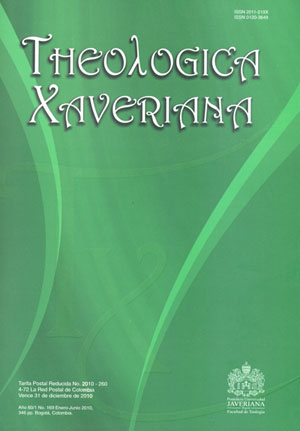Abstract
This article deals with the progressive character of all religious experiences. In order to verify this feature, several authors from Christian tradition who highlighted its progressivity are analyzed: Saint Irenaeus, Saint Bonaventure, and Saint Therese of Ávila. From that overview it can be inferred that an immediatist pretention in the religious formation might be harmful for the human spirit and for all religious education processes which respect human freedom. Progressivity then demands accounting. When claiming its pertinence in the current “religious offer” in the city, narrativity can become a critical criterion in order to question the current urban religious narratives.
This journal is registered under a Creative Commons Attribution 4.0 International Public License. Thus, this work may be reproduced, distributed, and publicly shared in digital format, as long as the names of the authors and Pontificia Universidad Javeriana are acknowledged. Others are allowed to quote, adapt, transform, auto-archive, republish, and create based on this material, for any purpose (even commercial ones), provided the authorship is duly acknowledged, a link to the original work is provided, and it is specified if changes have been made. Pontificia Universidad Javeriana does not hold the rights of published works and the authors are solely responsible for the contents of their works; they keep the moral, intellectual, privacy, and publicity rights.
Approving the intervention of the work (review, copy-editing, translation, layout) and the following outreach, are granted through an use license and not through an assignment of rights. This means the journal and Pontificia Universidad Javeriana cannot be held responsible for any ethical malpractice by the authors. As a consequence of the protection granted by the use license, the journal is not required to publish recantations or modify information already published, unless the errata stems from the editorial management process. Publishing contents in this journal does not generate royalties for contributors.


